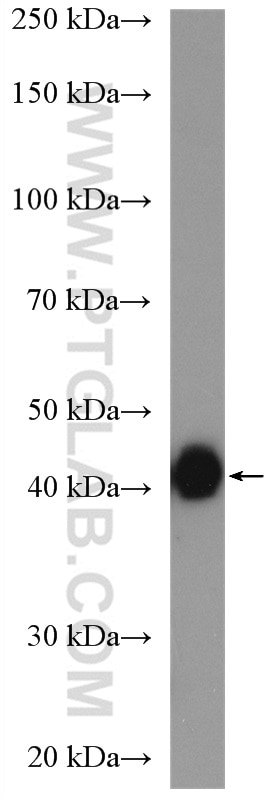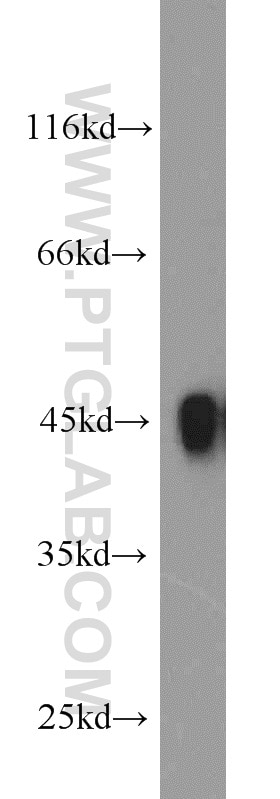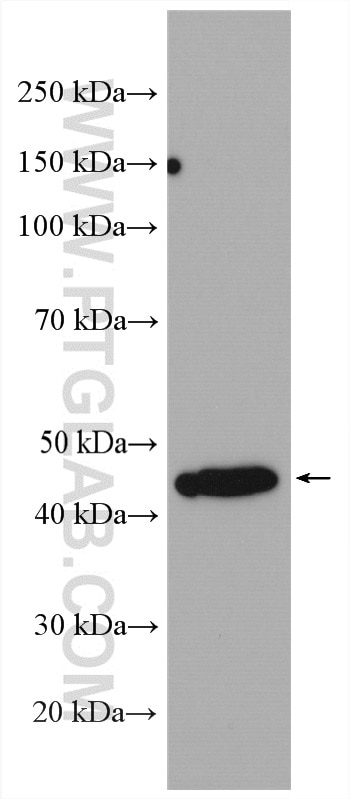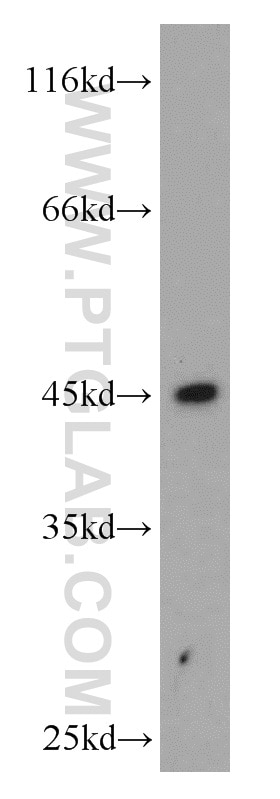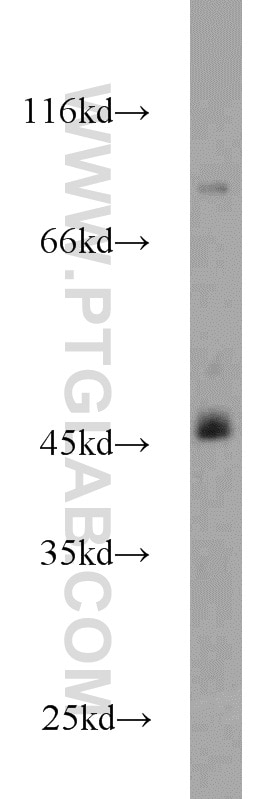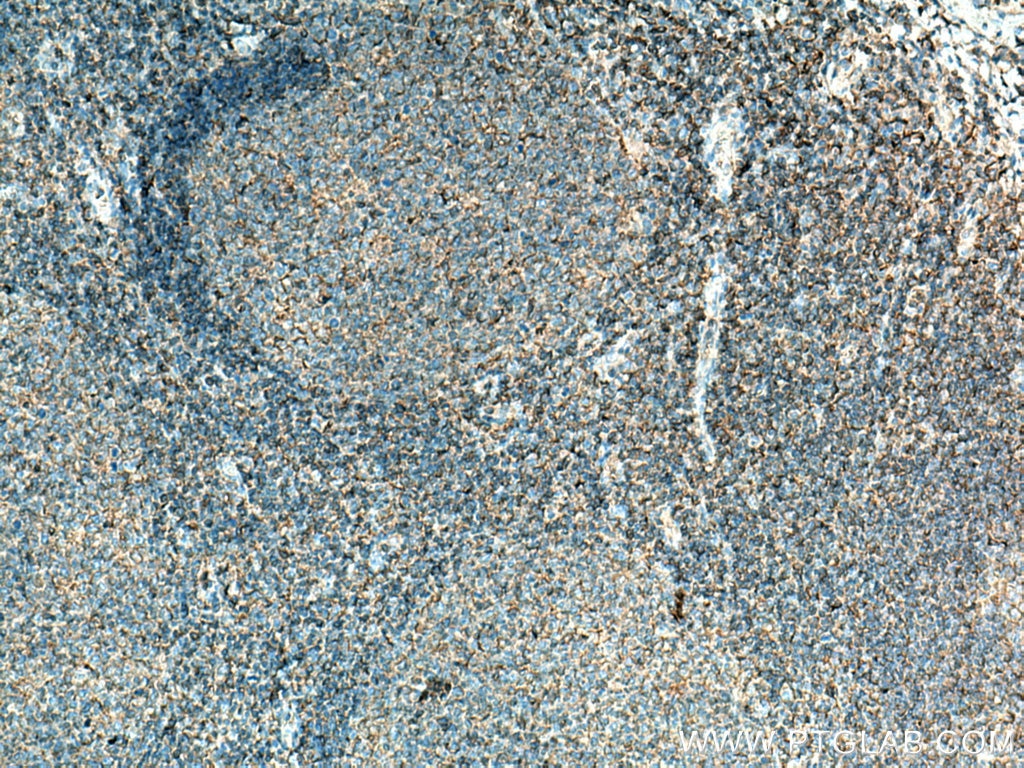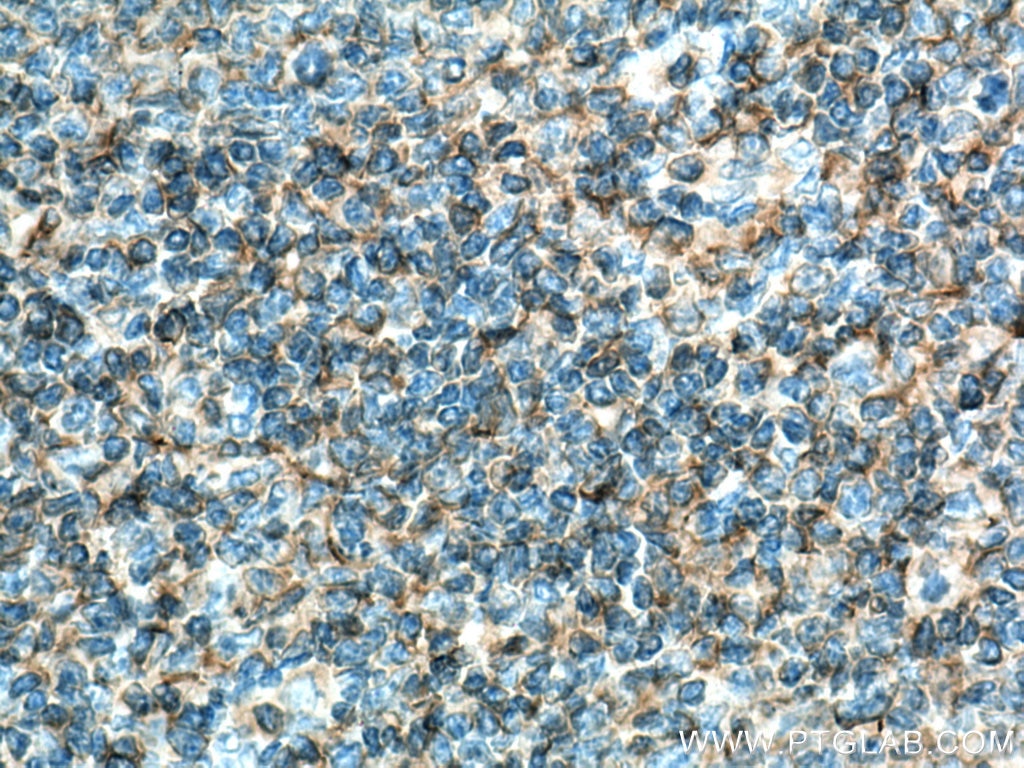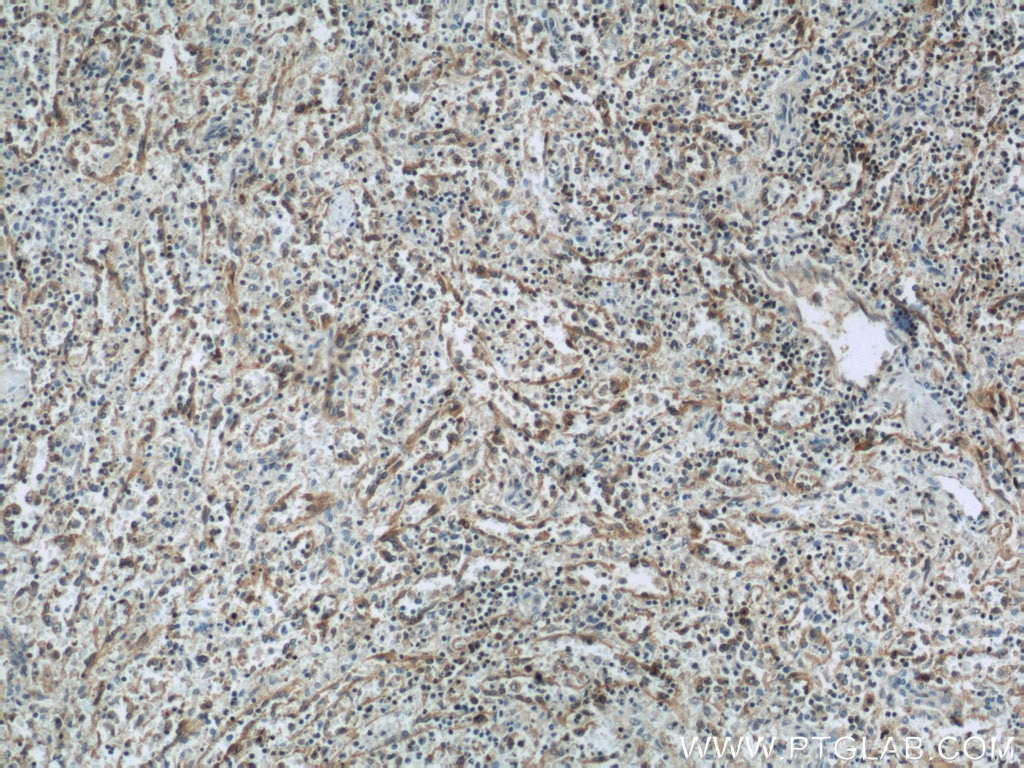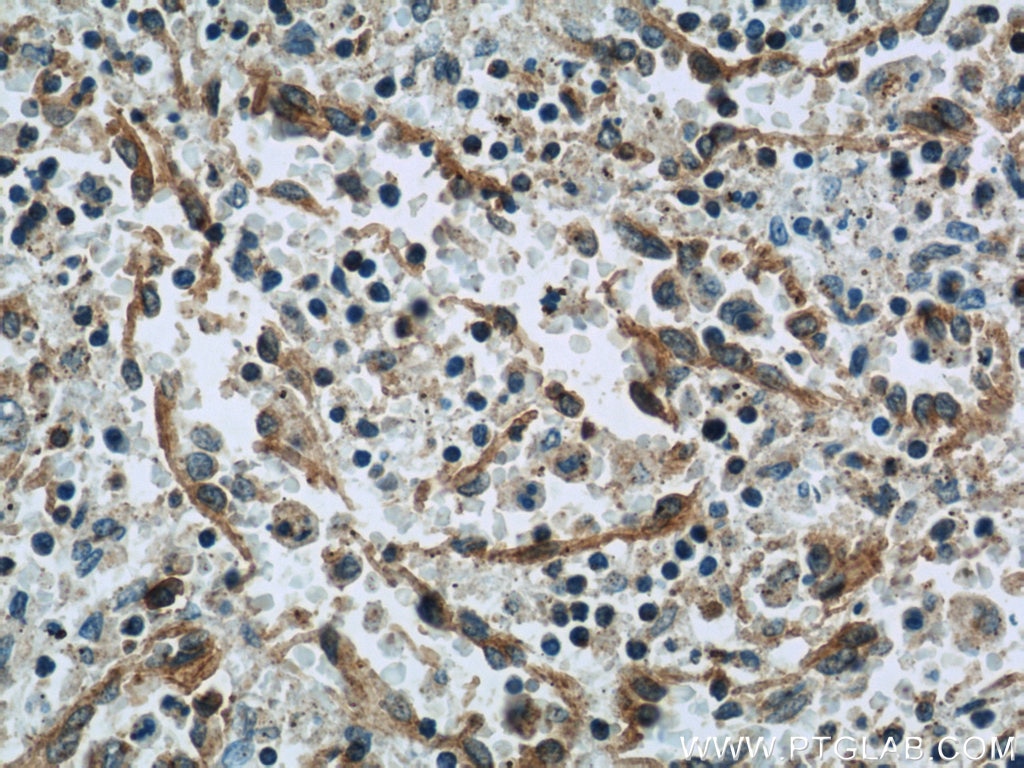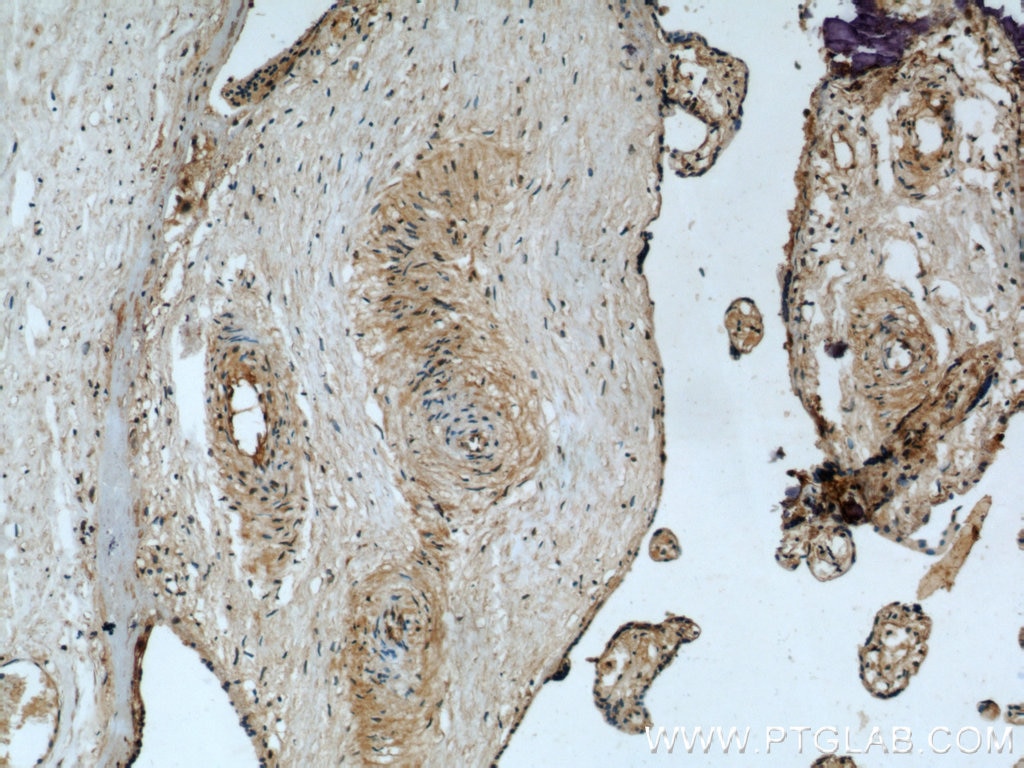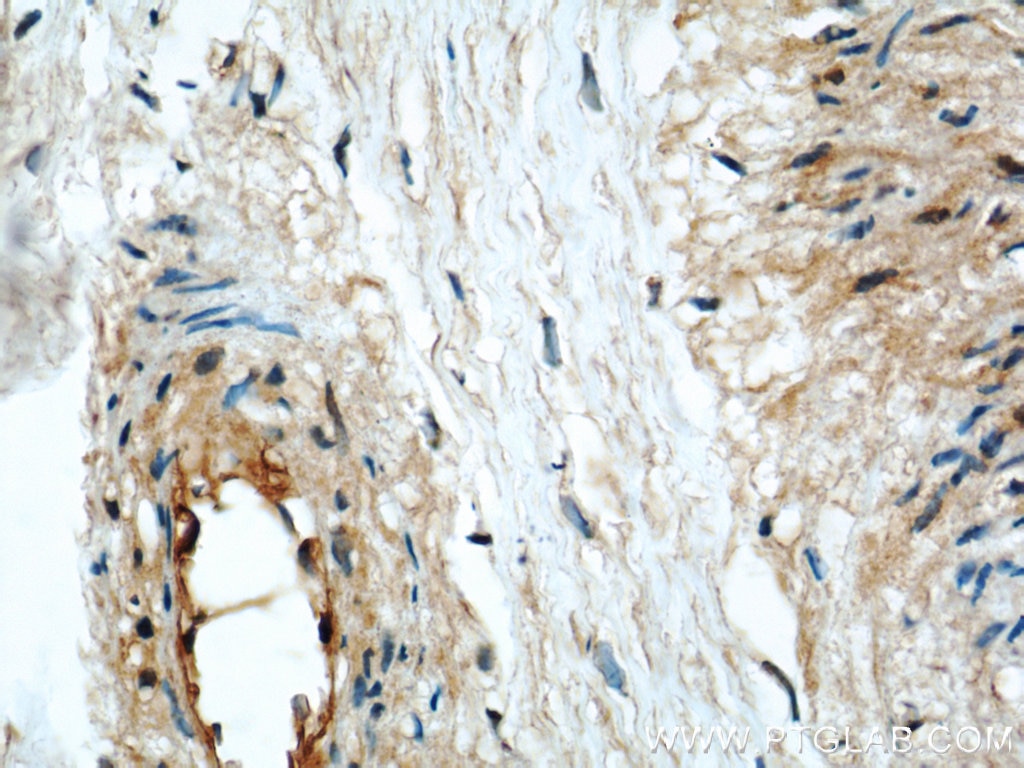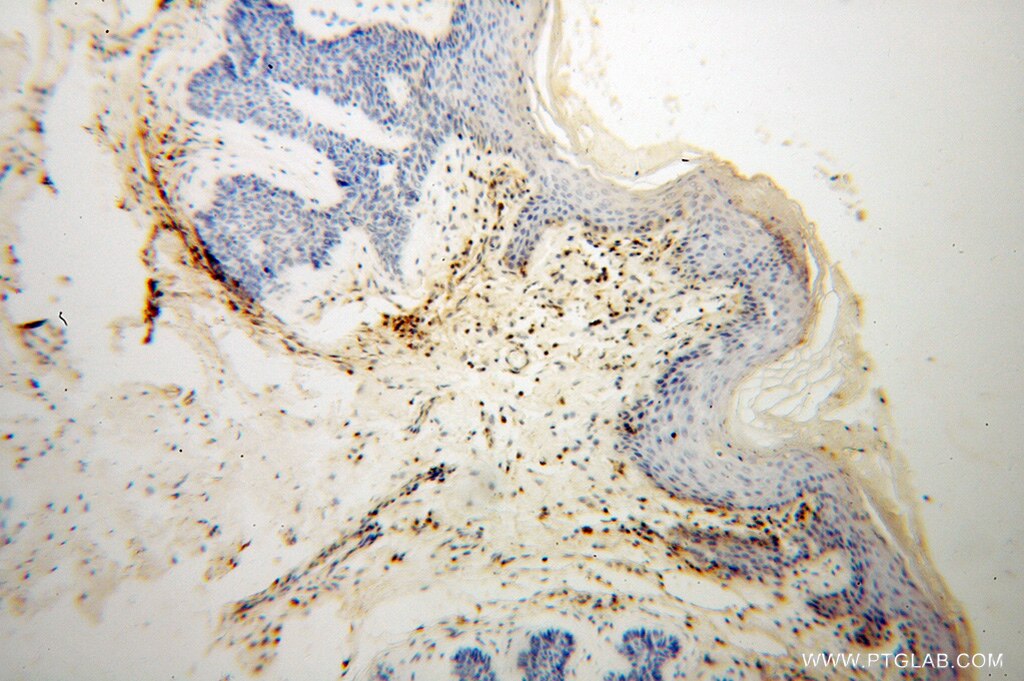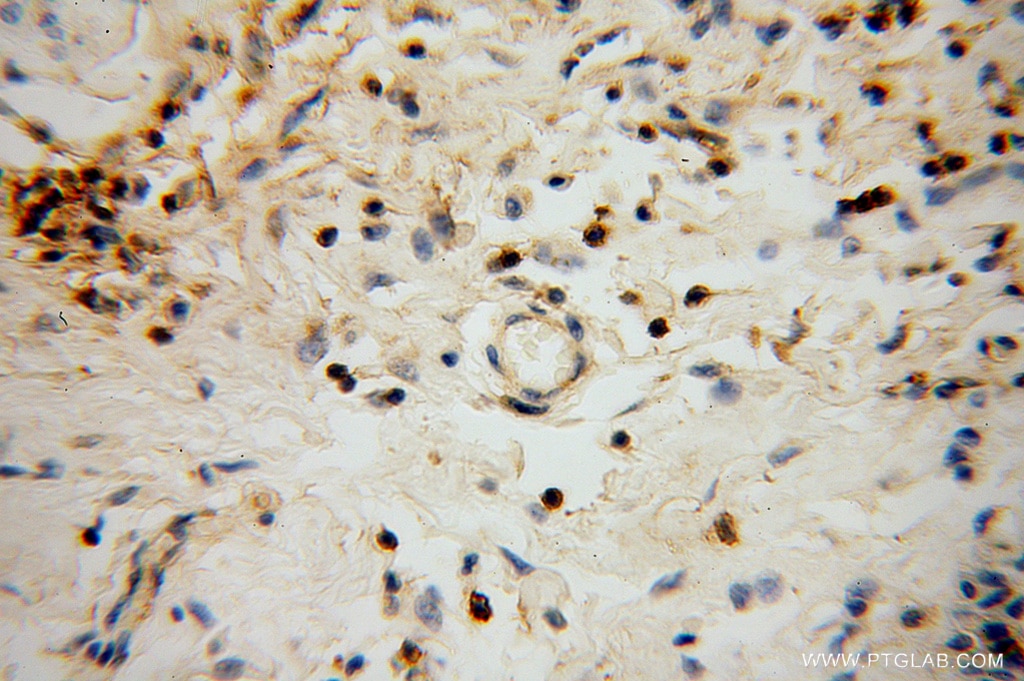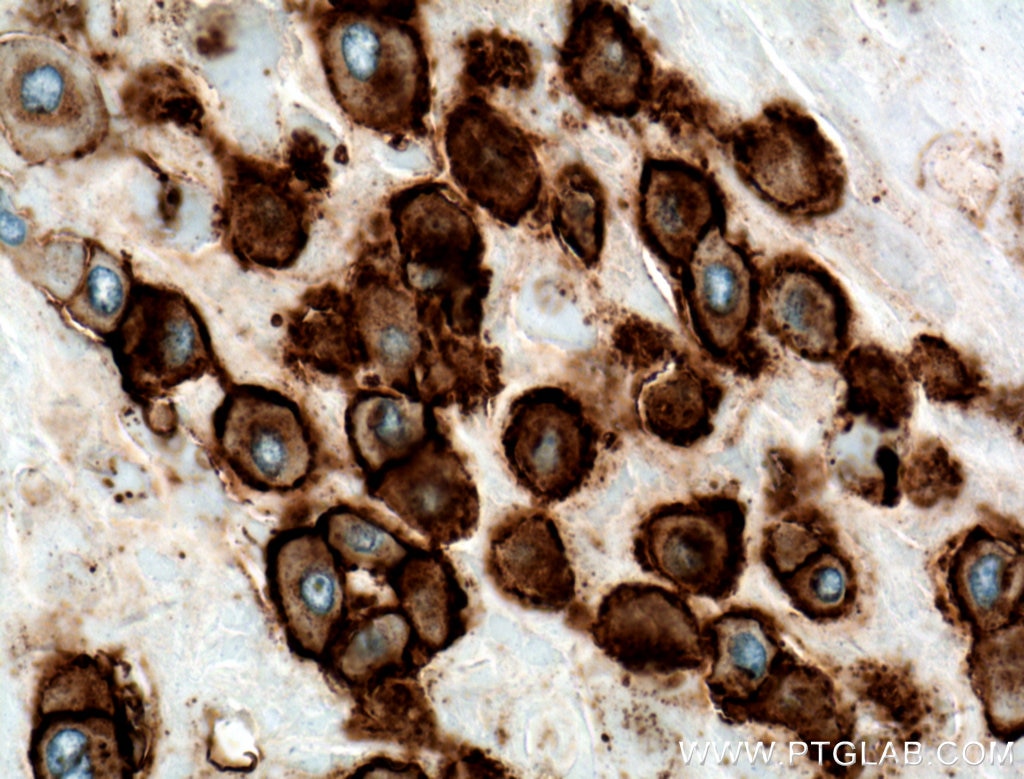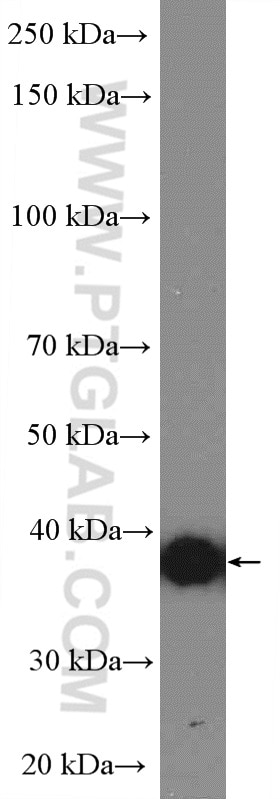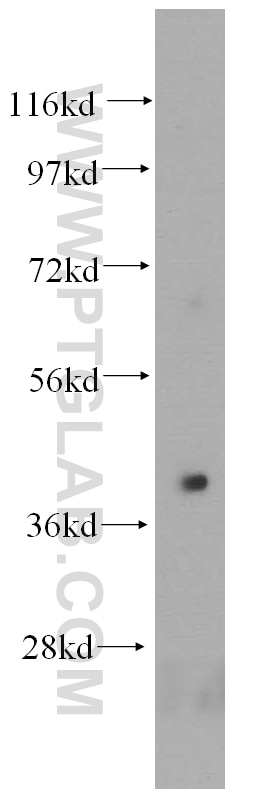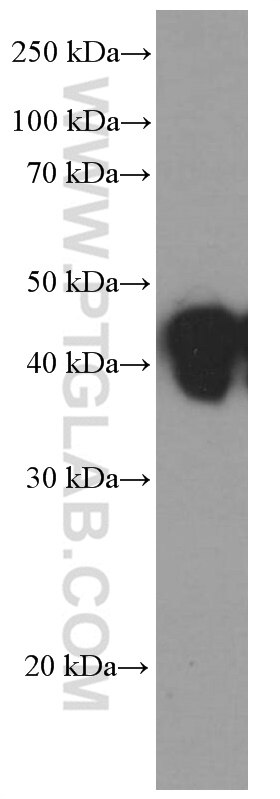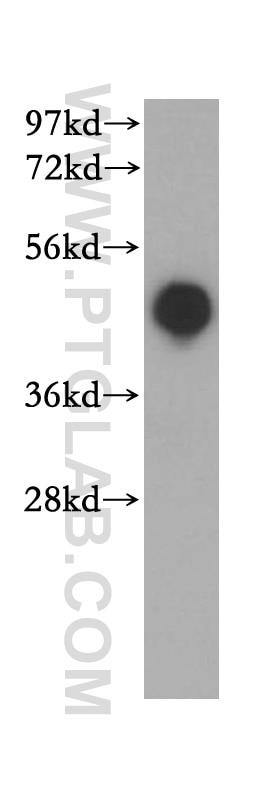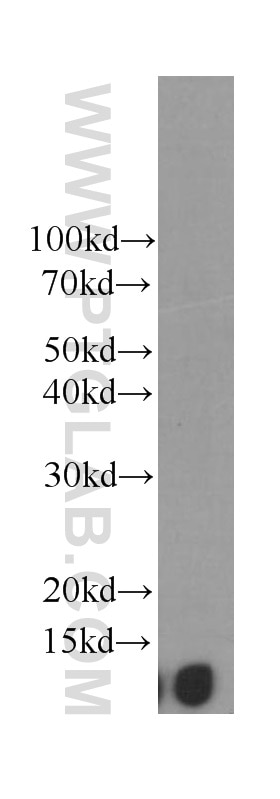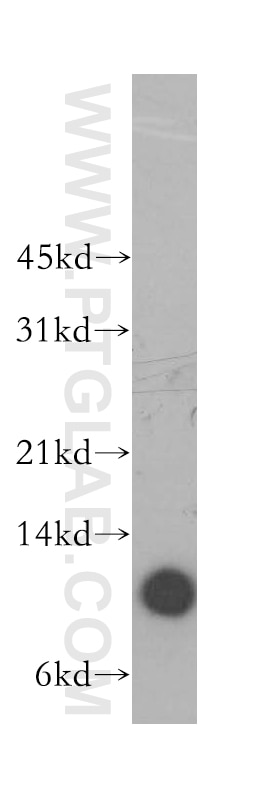- Phare
- Validé par KD/KO
Anticorps Polyclonal de lapin anti-HLA-F
HLA-F Polyclonal Antibody for WB, IHC, ELISA
Hôte / Isotype
Lapin / IgG
Réactivité testée
Humain et plus (2)
Applications
WB, IF, IHC, ELISA
Conjugaison
Non conjugué
N° de cat : 14670-1-AP
Synonymes
Galerie de données de validation
Applications testées
| Résultats positifs en WB | cellules Raji, cellules A431, tissu placentaire humain, tissu splénique humain |
| Résultats positifs en IHC | tissu d'amygdalite humain, tissu de cancer de la peau humain, tissu placentaire humain, tissu splénique humain il est suggéré de démasquer l'antigène avec un tampon de TE buffer pH 9.0; (*) À défaut, 'le démasquage de l'antigène peut être 'effectué avec un tampon citrate pH 6,0. |
Dilution recommandée
| Application | Dilution |
|---|---|
| Western Blot (WB) | WB : 1:1000-1:4000 |
| Immunohistochimie (IHC) | IHC : 1:50-1:500 |
| It is recommended that this reagent should be titrated in each testing system to obtain optimal results. | |
| Sample-dependent, check data in validation data gallery | |
Applications publiées
| KD/KO | See 1 publications below |
| WB | See 2 publications below |
| IHC | See 7 publications below |
| IF | See 1 publications below |
Informations sur le produit
14670-1-AP cible HLA-F dans les applications de WB, IF, IHC, ELISA et montre une réactivité avec des échantillons Humain
| Réactivité | Humain |
| Réactivité citée | rat, Humain, souris |
| Hôte / Isotype | Lapin / IgG |
| Clonalité | Polyclonal |
| Type | Anticorps |
| Immunogène | HLA-F Protéine recombinante Ag6335 |
| Nom complet | major histocompatibility complex, class I, F |
| Masse moléculaire calculée | 39 kDa |
| Poids moléculaire observé | 40-45 kDa |
| Numéro d’acquisition GenBank | BC062991 |
| Symbole du gène | HLA-F |
| Identification du gène (NCBI) | 3134 |
| Conjugaison | Non conjugué |
| Forme | Liquide |
| Méthode de purification | Purification par affinité contre l'antigène |
| Tampon de stockage | PBS avec azoture de sodium à 0,02 % et glycérol à 50 % pH 7,3 |
| Conditions de stockage | Stocker à -20°C. Stable pendant un an après l'expédition. L'aliquotage n'est pas nécessaire pour le stockage à -20oC Les 20ul contiennent 0,1% de BSA. |
Informations générales
Human major histocompatibility complex (MHC) antigens, also referred to as human leukocyte antigens (HLA), are encoded by genes located on the short arm of chromosome 6 (6p21.3). There are two classes of HLA antigens: class I and class II. This class I molecules are membrane glycoproteins composed of a heavy (alpha) chain which is encoded by a HLA class I gene, and β2-microglobulin light (beta) chain. The most extensively characterized members of the HLA class I gene family are the genes encoding the major transplantation antigenes, HLA-A, B and C. HLA-F is a non-classical MHC class I molecule. (PMID: 667938; 3375250; 2249951)
Protocole
| Product Specific Protocols | |
|---|---|
| WB protocol for HLA-F antibody 14670-1-AP | Download protocol |
| IHC protocol for HLA-F antibody 14670-1-AP | Download protocol |
| Standard Protocols | |
|---|---|
| Click here to view our Standard Protocols |
Publications
| Species | Application | Title |
|---|---|---|
Kidney Int Upregulation of HLA-F expression by BK polyomavirus infection induces immune recognition by KIR3DS1-positive natural killer cells. | ||
Int J Cancer Alteration of HLA-F and HLA I antigen expression in the tumor is associated with survival in patients with esophageal squamous cell carcinoma. | ||
J Immunol Immune Modifications in Fetal Membranes Overlying the Cervix Precede Parturition in Humans. | ||
Int J Biol Sci Targeting HLA-F suppresses the proliferation of glioma cells via a reduction in hexokinase 2-dependent glycolysis.
| ||
Lung Cancer HLA-F expression is a prognostic factor in patients with non-small-cell lung cancer. | ||
Oncol Lett Lesion human leukocyte antigen-F expression is associated with a poor prognosis in patients with hepatocellular carcinoma. |
